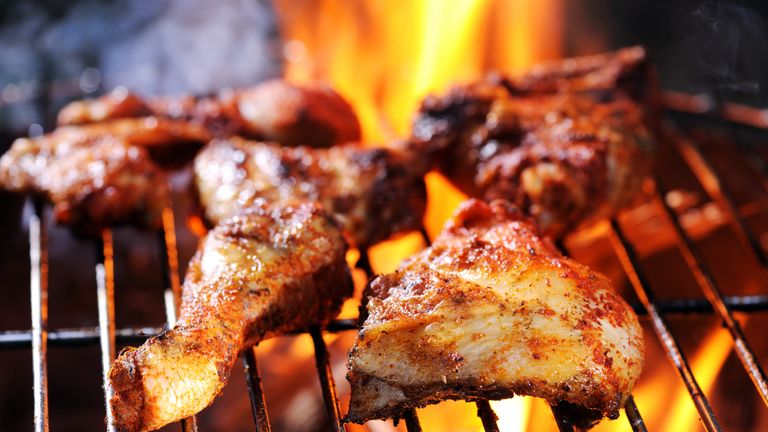Barbecues threatened as gas cylinder shortage ‘exacerbated by pingdemic’
The holders of patio gas cylinders, mostly used to heat gas barbecues, are being urged to return disused bottles to help alleviate a national shortage – being made worse by the so-called ‘pingdemic’.
Sales of re-fillable propane and butane cylinders first shot up late last spring as COVID-19 restrictions kept families at home and away from shuttered pubs, restaurants and cafes.
However, demand massively outstripped supply and the sector has been playing catch up ever since.
Liquid Gas UK told Sky News that the situation had deteriorated because of further pandemic-related hurdles.
“This situation is due to unprecedented demand for cylinders in recent months due to increased staycations and the lead times of importing cylinders being lengthened due to volatile shipping markets and increased steel demand globally.
“The situation has been further exacerbated in recent weeks due to self-isolations from the NHS track and trace app, impacting the availability of key operational staff.
“Industry are encouraging those with empty or unused cylinders to return them, in order to improve availability.”
The body was hopeful that supply would improve as more cylinders became available.
It insisted there was no shortage of gas to fill cylinders and the dearth of patio gas bottle availability did not extend to those used for heating systems, extensively in mobile homes.
Calor, among the major suppliers of cylinders to homes and businesses, said it was “continuing to work tirelessly” on the issue in a statement via its website.
“Orders for new cylinders were placed well in advance to meet the expected significant demand, but the lead times for cylinders, which are manufactured overseas, have been significantly longer than previous years, caused by continued COVID issues in the manufacturing locations, increased global steel demand, and increased global shipping demand.
“In addition to new cylinders, we are working hard to refurbish existing stock at record levels to put as many cylinders into service as possible,” the company said.
